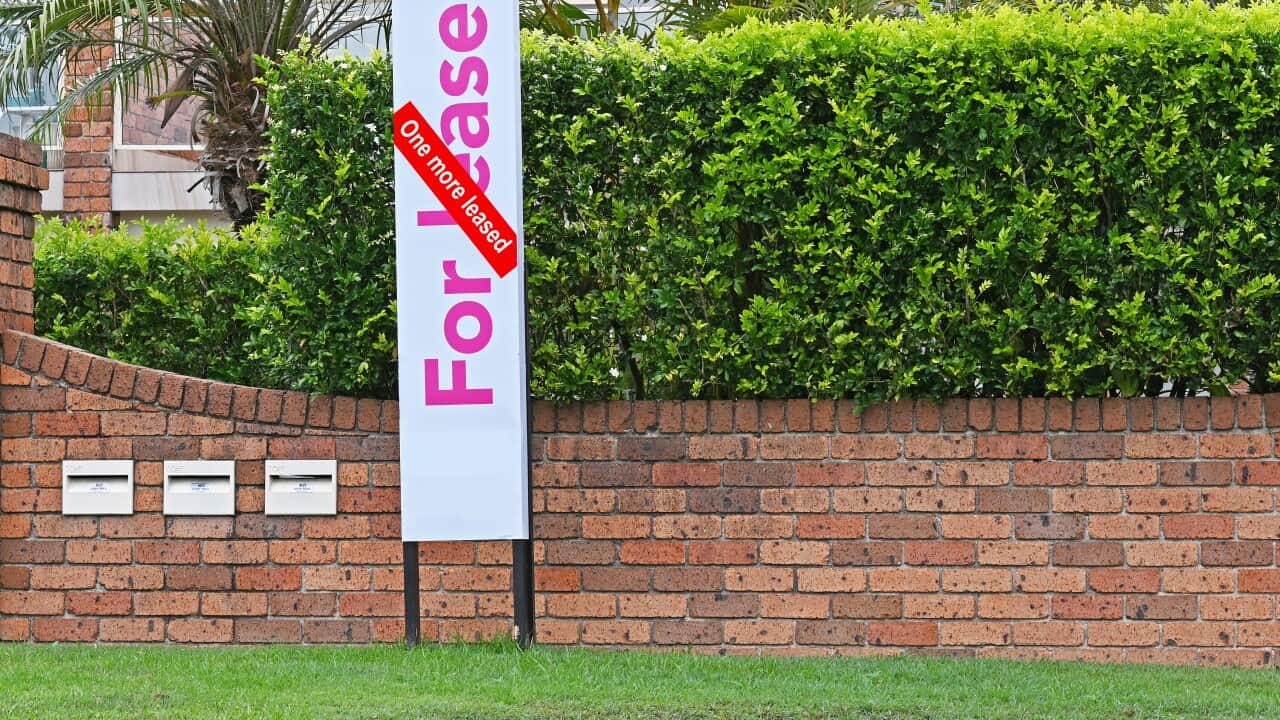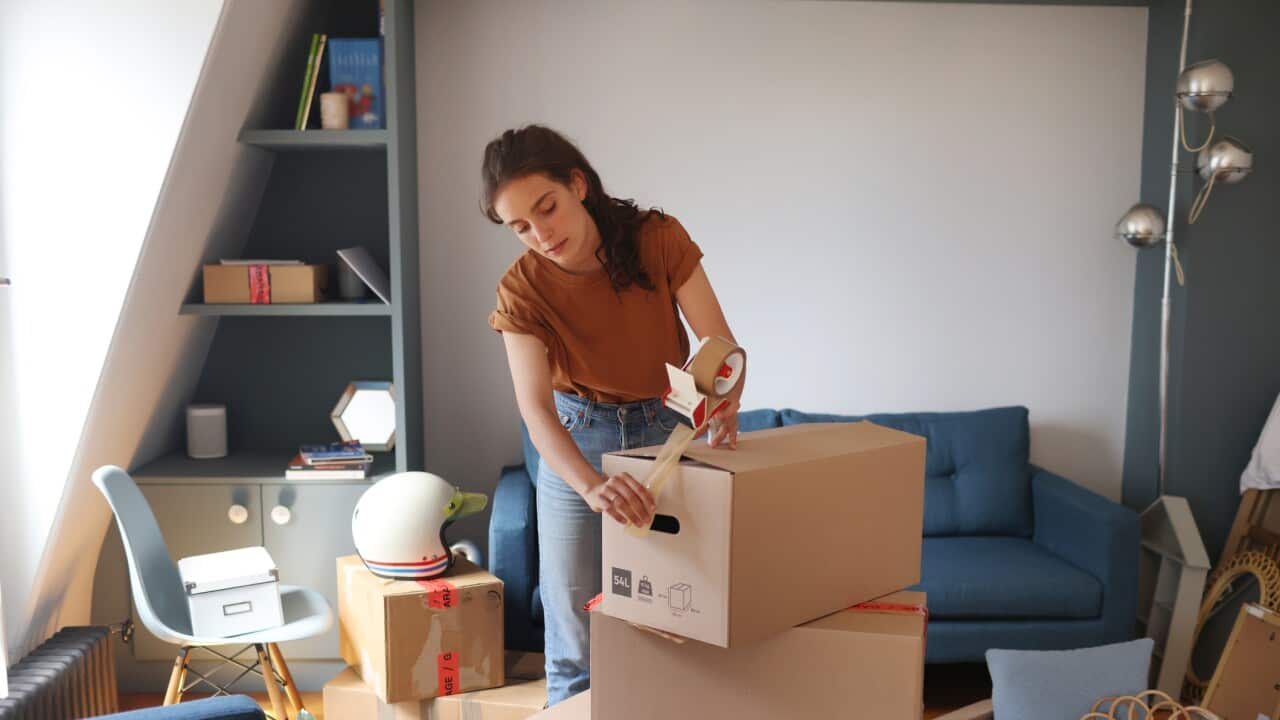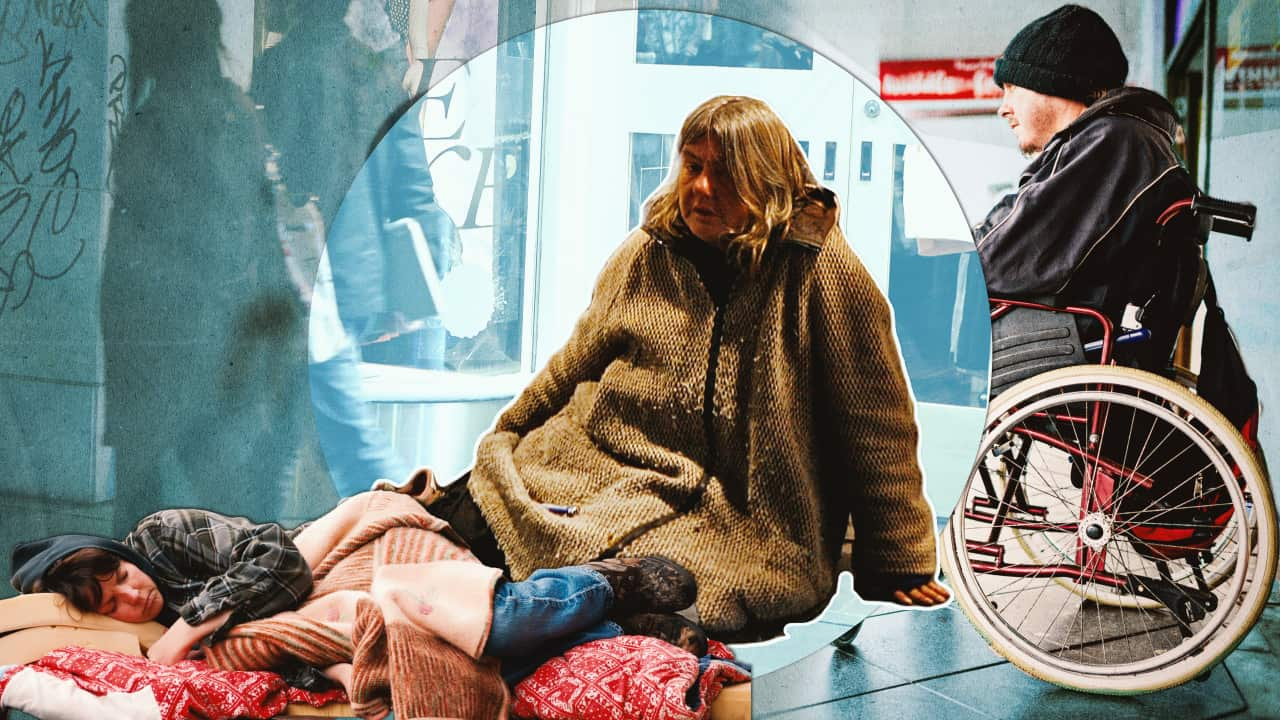Key Points
- A shared house is a household where unrelated individuals live togther.
- Rising cost of living has compelled many people to seek shared accommodation.
- It is necessary to verify both the legitimacy of the property and the identity of the person offering it.
Amid the growing cost of living crisis, more people are turning to shared accommodation. The Australian Bureau of Statistics (ABS) defines a shared house as a household where two or more unrelated individuals, aged 15 years or older, reside together.
Claudia Conley is Flatmates Community Manager, an online platform that connects individuals seeking shared accommodations.
“A share house is a home that is made up of people who aren’t related and aren’t in a couple who live together under the same roof and share the rent, split bills and split things in the house,” she defines.

It's not only younger people who are seeking shared accommodation. Credit: Klaus Vedfelt/Getty Images
“The stereotype for share houses is young people, under the age of 35, was actually seen this demographic of decrease by 10 per cent in the past year on flatmates, and we've seen our members over the age of 55 actually increased by 10 per cent in the past 12 months and this is because we're getting more live in landlords enter into the market renting a spare room in their home to help offset all of the rate rises we've seen recently.”
Financial hardship
The rising cost of living has compelled many Australians to reduce expenses and seek budget-friendly alternatives. Due to increasing interest rates, Claudia says shared housing has gained significant popularity over the past two years.
“In the past last two years I guess demand for share housing has really skyrocketed and that is because of the rising cost of living and because of the rental crisis. Living in a share house can still obviously be expensive for people and still come with costs, but it is much more affordable compared with the traditional renting. In fact, 85 per cent of our audience live in share housing because of financial reasons and this is really a combination of saving up to purchase their own home or lifestyle,” she says.
Not only individuals experiencing financial difficulties, but also newly arrived migrants without a rental history often seek shared accommodation.

Rising cost of living means that more people are seeking to share a house with others. Credit: Rafael Ben-Ari/Getty Images
“If they don’t have history they are struggling [to find accommodation] and they are moving towards shared housing,” Mr Kaindal adds.
Mr Kaindal says supply and demand also play a crucial role in making shared housing a more viable option for those seeking accommodation in a competitive rental market.
“If we put a house on market we usually get 40 to 100 applications in first week and that makes things really hard for new migrants and existing people who are selling their houses and moving to rental market because affordability is not there.”

Navigating the shared housing market can be challenging, especially with the increasing prevalence of scams targeting potential tenants.
Sharing house in traditional market
Tenants already living in a house can also sublet their residence to share rent but need prior approval from the landlord, Mr Kaindal explains.
“There can be a head renter or multiple head renters and they are liable to pay rent on time and for everything and they are liable to arrange everything. He [or she] is the one who is going to communicate with real estate.”
When a landlord shares a house while residing there, they are responsible for providing all basic amenities.
“ They should have a different kitchen, separate bathroom and there is some restriction around cleaning. That’s kind of mutual agreement they have to come up with to make the house livable,” Mr Kaindal says.
Resolution of disputes
Resolving disagreements promptly is crucial for keeping shared housing peaceful and pleasant for everyone involved. Ms Conley advises that tenants and landlords keep everything between them in writing to avoid any dispute.
“Both parties are highly encouraged to ensure you have absolutely everything written down about Your Arrangement how long you're going to be living in the home? How much rent you'll be paying? What's the bond what happens if things get broken little you see important information written down and have both parties sign it.”

Serious mature couple receive professional advice Credit: JohnnyGreig/Getty Images
Scams in shared housing
Navigating the shared housing market can be challenging, especially with the increasing prevalence of scams targeting potential tenants.
Ms Conley says that scams do happen, but we can avoid them.
“If you're contacting someone on someone's messaged you online and they're offering you a beautiful penthouse apartment in Melbourne with views of the city, [and] it's fully furnished. You have all these incredible amenities and new appliances and it's $200 a week. That sounds too good to be true and that could be a scam.”
It is best to exercise caution when dealing with individuals offering goods or services online without the ability to meet in person.
“If there's lots of excuses being put up from someone as to why they can't meet you. That could be a scam and that's something to keep an eye out for.”
It is necessary to verify both the legitimacy of the property and the identity of the person you're communicating with, especially for those planning a move to Australia.
“This can be extremely difficult as you obviously want to have your accommodation organised before you arrive. But from our perspective, that is the safest thing you can do to help mitigate scams.”
Subscribe or follow the Australia Explained podcast for more valuable information and tips about settling into your new life in Australia.














